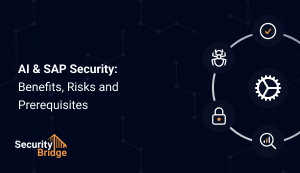There is now over one megabyte of data per second being created for every person on earth. If harnessed properly, that creates an array of exciting opportunities for businesses. However, there are also significant security challenges associated with such large amounts of data floating around.
Across all industries and disciplines, organizations must now find new security solutions to keep sensitive information of individuals, companies, and even entire nations secure amid a growing list of threats and challenges.
Solutions
To tackle this thorny issue,
Intel introduced Intel Software Guard Extensions (SGX). This security solution works by utilizing application isolation technology that protects selected code and data from modification and partitions it into secure enclaves.
Intel SGX provides a versatile security solution that has proven to be an effective data protection method across a number of fields, each with their own complex security challenges.
Import/Export
As the world grows more interconnected with the help of technology, trust is not an easy commodity to come by. Organizations operating in various nations may struggle to trust a potential partner with geopolitical differences. The cost of this mistrust is largely borne by consumers.
“You hear data is the new oil, the new gold. Well, trade is the fuel of the digital economy. Without trade, consumers and citizens cannot be the benefactors of all the wonderful technology that not only US companies are producing but companies abroad as well,” said Clifton Roberts, Global Director of Intel’s International Trade Group.
To help bridge the gap between disparate parties, Intel’s SGX plays a large role in its confidential computing capabilities. The confidential computing trusted an execution environment is a place where everyone can place trust in the technology without having to trust other parties.
Organizations can share the information to turn trade deals into reality, all while protecting sensitive information, such as intellectual property and personal information, and ensuring compliance with customs. This process opens up a world of new trade possibilities.
“Now parties who, by definition, should not trust each other, can come together and collaborate on shared data sets and concluded that they need for trade to happen without actually giving each other visibility to the data itself,” said Dave Singh of Intel’s confidential computing enabling team.
Confidential computing capabilities enabled by Intel SGX not only open up new trade possibilities but also speed up existing ones.
One shipment in the import/export business can have 20 companies involved, which introduces a high level of complexity to the transactions. When you also factor in the unique requirements of each nation’s customs agency, it is easy to see how shipments can quickly get bogged down in regulatory red tape.
Intel SGX helps reduce cycle times by allowing customs agencies to review any required confidential information in its own enclave without having access to raw data.
Harnessing enhanced data management techniques not only helps businesses but can also aid customs agencies as they work to protect the safety and business interests of those within their borders.
“Customs officials are helping fight the battle against smuggling and commercial fraud, and protecting the interests of consumers. That’s going to take a lot of management of data,” said Roberts.
Healthcare
Personal medical data may not have been on the forefront of many people’s minds before 2020, but after COVID-19 vaccination mandates went into effect, many organizations faced new hurdles in determining how best to review vaccination statuses while also keeping that information secure.
Intel SGX allows protected health information (PHI) to be de-identified and encrypted as required while adhering to regulations and giving users assurances that their personal and confidential medical information is being shielded.
“Having the proven tools, policies, and processes for encrypting and de-identifying patient data provides the assurance necessary to address individual concerns about PHI,” said Walt Ellenberger, Healthcare Business Development and Strategic Partners for SAP Regulated Industries at Intel.
As live events come roaring back to life, it is crucial for those managing in-person occasions to understand the associated risks while also being able to mitigate them. Intel offers its Pandemic Cohort Management Suite as a risk-data-management solution powered by Intel SGX.
In the suite, users download an app that calculates their risk of becoming infected or infectious with COVID-19 using medical data such as vaccination credentials and current health and symptom details, as well as location, testing, and tracing information. This trove of data is kept confidential in security-enabled enclaves using Intel SGX technology.
Gaining insights into attendees allows managers to avoid a super spreader event. The Pandemic Cohort Management Suite computes risk calculations and offers recommendations on how to conduct the event in the future in order to minimize risk to all guests.
Department of Defense
Intel partnered with
SAP to safeguard some of the most confidential and secure information from the U.S. Department of Defense, as well as many other defense ministries around the globe. Working with such a large pool of sensitive information presents several unique challenges, particularly as it pertains to logistics.
Intel offers SAP more computing horsepower via its powerful
Intel Xeon Scalable processors, giving Defense Department uses the ability to analyze data in an operational dashboard without disclosing specifically what data is being sought and keeping vital information secure from any potential poor actors.
“If I ask for a status on a particular truck, then an enemy would know I’m interested in that truck for a reason. If I asked for a status on every truck or every plane or every ship, and then I do the matching inside my secure firewall, the enemy can't discern which one I was particularly interested in,” said Dan Miller, Director of Defense Solutions at SAP Public Services for North America.
It is crucial for defense officials to know
precisely where troops and vehicles are at any point, as well as any upcoming maintenance needs for vehicles in order to keep all assets battle-ready. SAP helps the Department of Defense manage assets such as planes, ships, tanks, and trucks. Officials get an overview of these assets—the parts that are needed for them to operate, supplies on hand, and the work orders needed to keep it ready.
“That’s kind of the magic that SAP provides. And just as it sounds, that’s an integration of a lot of data. The test step is not that we integrate it and do it on a weekly or daily basis, but it’s in real-time,” Miller said.
Conclusion
With data more prevalent than ever, cybersecurity concerns must be paramount. More so than ever, user errors or poor actors can leave sensitive personal information vulnerable to falling into the wrong hands.
That is why the application of isolation technology found in Intel SGX is so crucial. By putting certain pertinent information in silos, trusted users can access the information they need while blocking it from being accessed by anyone else.
Whether the data in question regards valuable trade secrets and intellectual property, personal medical information, or even something as sensitive as classified military information, organizations must make sure they are doing everything in their power to protect this important information while also ensuring that trusted parties can access the data they need in order to meet business and organizational goals.





